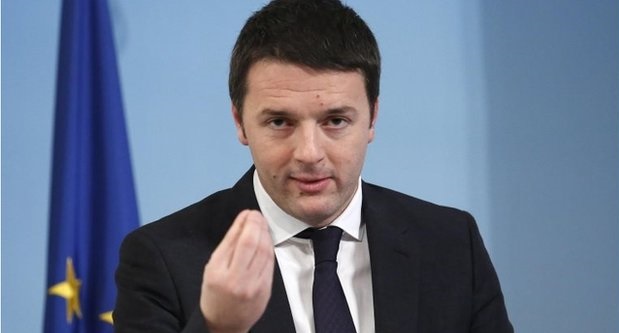Despite the fact that the Nationalist Party has been more than a little critical of the Labour government’s recent dealings with China, it has perhaps unwittingly helped open the doors for China to oil exploration on Malta’s continental shelf – a source of intense controversy between Malta and its neighbouring countries for decades.
In a law passed unanimously through Parliament during Friday’s final session before the summer recess – the Continental Shelf Bill, which regulates oil drilling in Maltese waters – both sides of the House of Representatives agreed to insert a clause that allows ‘neighbour states’, as opposed to ‘states’, to participate in oil exploration and drilling on Malta’s portion of the continental shelf.
The previous, decades old Continental Shelf Act had made no reference to ‘states’ and in fact oil exploration licences in the past had been granted to companies, and not for joint exploration initiatives with other states.

It was Joe Mizzi, the minister responsible for oil exploration, who had initially attempted to pass the law through Parliament with a wider scope for oil exploration and drilling to include another ‘state or states’, a proposal to which Nationalist MPs strongly objected. But any agreement on joint exploration has to be approved by Parliament and as such the government needed to reach a compromise on the matter.
In fact, the first version of the new law had read: “Provided further that nothing shall preclude the Government of Malta from entering into any cooperative arrangements, such as joint development agreements, revenue sharing agreements and international unitisation agreements, with other States for the purpose of exploring and exploiting the natural resources on the continental shelf…”
But following lengthy parliamentary debate on the matter, Mr Mizzi made an 11th hour ‘compromise’ for a change in wording in the new law from ‘states’ to ‘neighbouring states’. Apparently placated, the PN’s parliamentary group agreed and happily voted in favour of the clause and of the new law as a whole on Friday.
Ironically, the same clause had been up for Cabinet discussion under the previous administration, with certain ministers having lobbied to open up oil exploration to any ‘state’.
But political insiders speaking to this newspaper suggest that the government may very well have pulled a fast one on the Opposition because when voting in favour of the law the PN seems to have missed the hidden implications of Mr Mizzi’s ‘compromise’.

Malta discusses oil exploration in China
For starters, sources close to the government have told this newsroom that oil exploration had been discussed in China during the Prime Minister’s recent visit. The visit had, incidentally, been promoted as a State Visit but in actual fact it was more of a trade mission that provided for unofficial discussions on a variety of unofficial subjects.
Under the new clause voted in by both parties in Parliament, it is believed that China will be able to drill for Maltese oil even though it is not a ‘neighbour state’, on the back of Greece being one of Malta’s neighbouring states and through recent heavy Chinese investments in Greece.
Chinese companies that have invested significantly in Greece, technically Malta’s neighbour state on the continental shelf, could very well have had the back door to oil exploration on Malta’s continental shelf opened to them through their stakes in Greek companies. When it comes to the continental shelf, Greece is Malta’s direct eastern ‘neighbour’.

(Greek PM Samaras)
Over and above that, Malta, Greece and Cyprus are brokering a deal, subject to European Commission approval, based on a proposal tabled by Greek Prime Minister Antonis Samaras. The agreement would see the three countries enter into a pact on the exploitation of sea resources, with a special focus on oil and gas exploration. The concept of jointly exploiting the sea resources in the Mediterranean and the setting up and coordination of exclusive economic zones (EEZs) between the three countries was first floated in June 2013 by Prime Minister Samaras.

(Chinese Premier Li Keqiang)
Doors to Maltese waters opened through Chinese agreement with Greece
China and Chinese companies are investing heavily in Greece and it is believed that a recent agreement China signed with Greece will give China access to oil exploration in the Mediterranean, a move which all neighbouring countries and the EU are wary of since it would grant the economic giant further power in the region along with the political influence it can bring to bear on certain EU member states.
In June, Greece signed an agreement with China through which the eastern power will invest significantly in Greece’s airports, railways and its busiest port – making Greece one of China’s gateways into Europe and the Mediterranean – as has been said of the recent Maltese agreement with China.
Chinese Premier Li Keqiang paid a three-day visit to Greece last month to strengthen economic ties between the countries, which have grown closer since China’s Cosco Pacific won a 35-year concession in 2009 to upgrade and run two container cargo piers at the Piraeus port.
Greece, which relies on bailout loans from the European Union and the International Monetary Fund, desperately needs foreign investment to spur growth and create jobs as it struggles to exit a six-year recession.
China – which has already submitted a bid to buy a majority stake in Piraeus – is also eyeing the construction of an €800 million airport in Crete and the main airport in Athens when the government puts it on sale later this year. The two sides also discussed a high-speed rail project.
“China attaches great importance to Greece’s unique geographic advantage of being a gateway to Europe and, in that light, is prepared to intensify its cooperation with Greece in basic infrastructure such as ports, roads, and railways,” the two governments said in a joint statement.
Both sides have sought to play up Greece’s strategic location at the crossroads of Europe, Asia and Africa, saying the country could become a hub for channelling goods from the world’s second-largest economy and top exporter into Europe.
Premier Li promised Greece that his country would remain a “long-term investor” in Greek bonds and said China would encourage its businesses to cooperate with Greek companies that repair ships.
China has, in fact, been steadily increasing its interest in Greek assets in recent years.
Cosco Pacific has said it wants to turn Piraeus into a regional hub and sought to expand port facilities and construct an oil refuelling jetty, a €230 million investment which needs to be approved by the European Commission. Cosco has also expressed interest in acquiring a 67 per cent stake in the port.
Chinese grid operator China State Grid Corp (SGCC) is among five suitors bidding for a controlling stake in Greek power grid operator ADMIE. Chinese conglomerate Fosun is part of a consortium developing the former Athens airport complex called Hellenikon – Greece’s biggest privatisation project, budgeted at €7 billion.

(Italy PM Matteo Renzi)
Italy irked
Sources in Brussels told this newsroom that among the countries severely irked by this move is Italy, which is said to have already mobilised its embassy in Malta to intervene with the Maltese government given the potential consequences of this move.